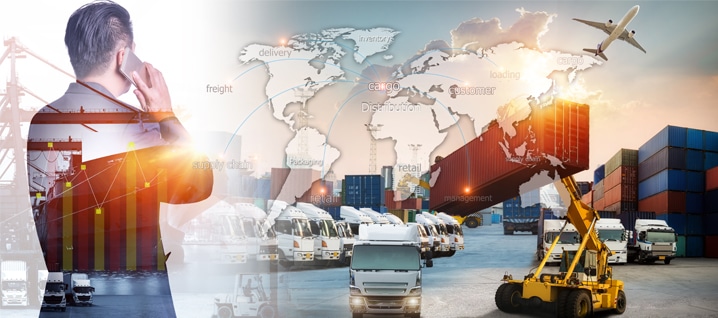In today’s rapidly changing world, achieving logistics excellence has emerged as a pivotal challenge and opportunity for businesses across diverse industries. The landscape of logistics, once defined by linear processes and predictability, now navigates through a complex interplay of technological advancements, global uncertainties, and shifting consumer demands. To attain logistics excellence amidst this turbulence requires a holistic and adaptable approach. One of the fundamental pillars is the integration of cutting-edge technologies. Automation, artificial intelligence, and the Internet of Things IoT are revolutionizing the way supply chains operate. From predictive analytics that enhance demand forecasting to autonomous vehicles streamlining transportation, these innovations optimize efficiency, minimize errors, and expedite decision-making. Moreover, as supply chains extend across borders, a keen understanding of geopolitical dynamics is imperative. Tariff fluctuations, trade policy alterations, and socio-political unrest can swiftly disrupt established routes and networks. To mitigate such risks, companies must adopt a nimble mindset, diversifying suppliers and distribution channels, and leveraging data to proactively identify vulnerabilities.

Customer expectations further underscore the importance of logistics excellence. The contemporary consumer demands not only impeccable products but also swift, transparent, and sustainable delivery. E-commerce giants have set new standards with same-day deliveries and real-time tracking. As a result, businesses must reconfigure their logistics models to accommodate the Amazon Effect, where speed and reliability reign supreme. Reverse logistics also merit attention, as efficient product returns become synonymous with customer satisfaction. Here, an opportunity exists to minimize waste and maximize resource recovery, simultaneously bolstering environmental sustainability and financial savings. In the pursuit of logistics excellence, collaboration emerges as a linchpin. A siloed approach no longer suffices. Instead, stakeholders across the supply chain ecosystem—manufacturers, suppliers, distributors, and even customers—must foster seamless communication and cooperation. Shared data platforms and cloud-based systems facilitate the flow of real-time information, enabling stakeholders to make synchronized decisions and promptly respond to disruptions. Additionally, partnerships beyond traditional boundaries offer innovative solutions. Collaborations with startups, for instance, can infuse fresh ideas and agility into established logistics frameworks.
While technology optimizes processes, human insight drives strategic thinking and creative problem-solving list of inter island shipping company in the philippines. Up skilling the workforce to harness the potential of emerging technologies ensures that employees remain empowered rather than threatened by the shifting logistics landscape. Moreover, a commitment to ethical considerations cannot be overlooked. As sustainability takes center stage, logistics excellence encompasses minimizing the carbon footprint, reducing waste, and embracing eco-friendly practices. In conclusion, logistics excellence in today’s rapidly changing world demands a paradigm shift. It necessitates the harmonious integration of technology, adaptability to global uncertainties, alignment with evolving customer expectations, collaborative synergy, and a commitment to human ingenuity and ethical responsibility. As businesses forge ahead into an era of transformative logistics, embracing these principles will not only mitigate challenges but also unlock new avenues of competitive advantage. Only by embracing change and proactively seeking innovation can companies truly achieve logistics excellence in this dynamic landscape.
